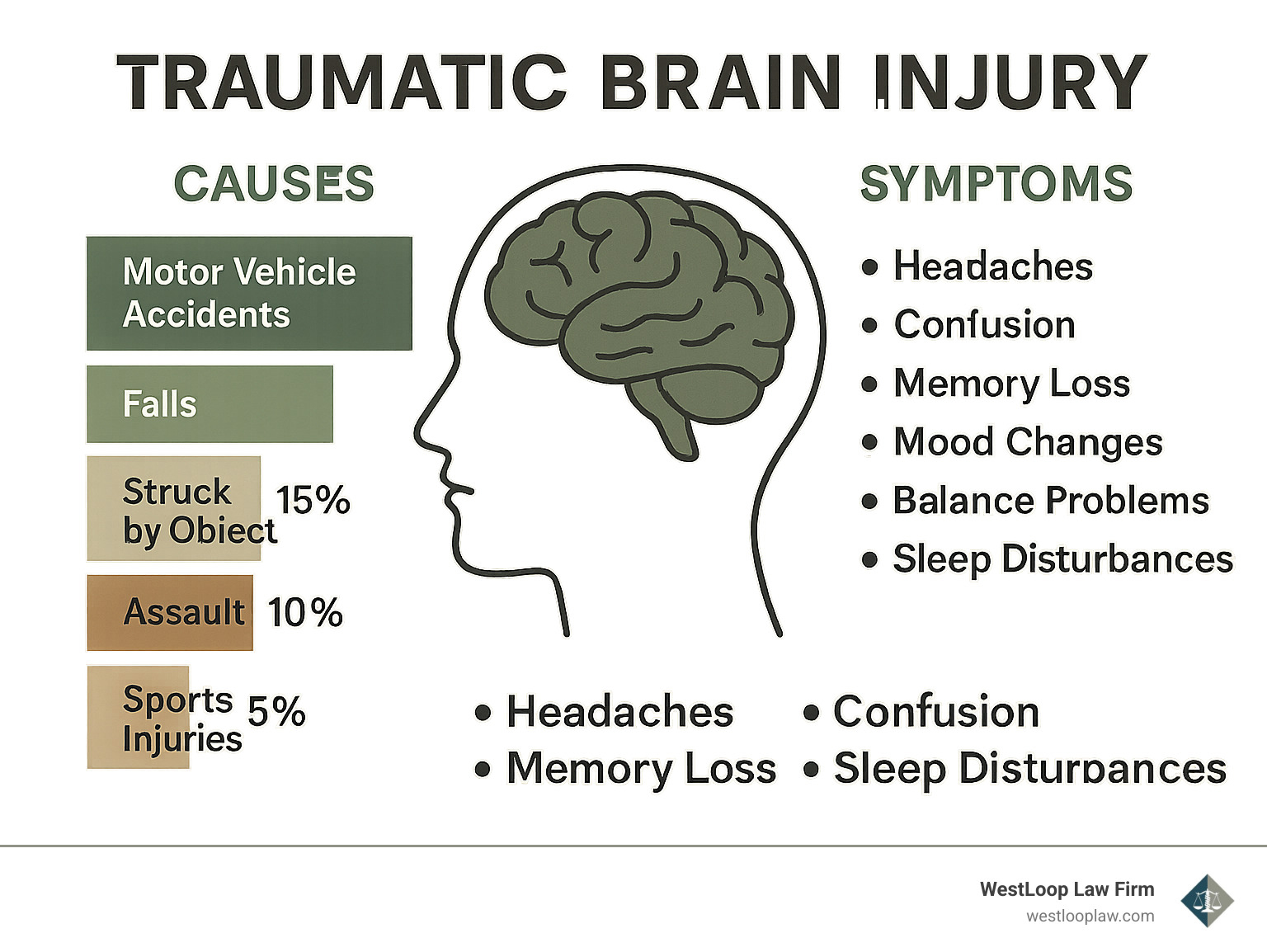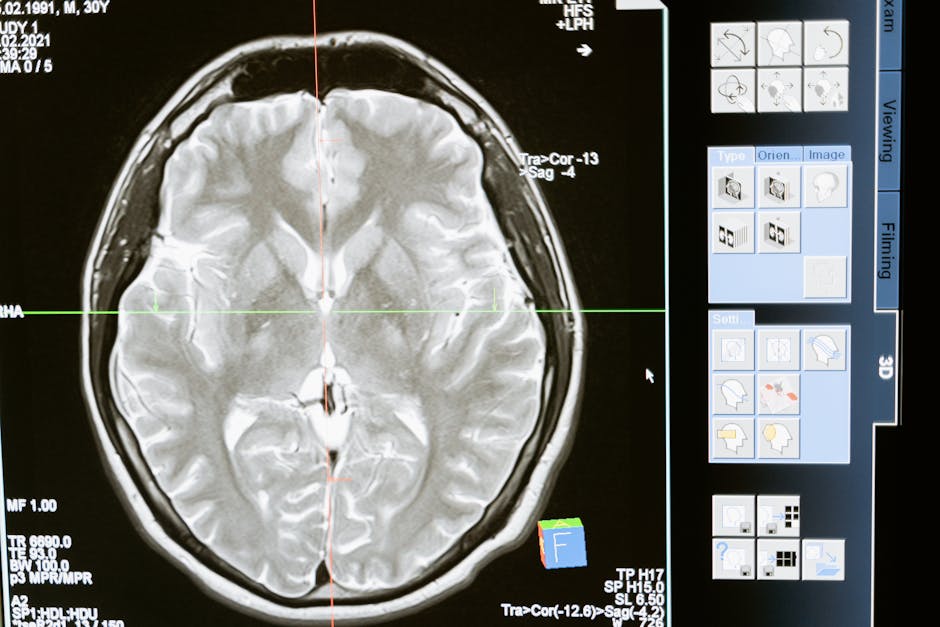Why Finding the Best Brain Injury Lawyer in Houston Can Make or Break Your Case
Understanding the Devastating Impact of Brain Injuries
According to state health data, more than 380,000 Texans sustain a traumatic brain injury every year—a staggering statistic that translates to roughly one person every 90 seconds. Behind each number is a person, a family, and a community suddenly struggling with overwhelming hospital bills, a barrage of unanswered questions, and a profoundly uncertain future. The initial shock of the accident is often just the beginning of a long and arduous journey.
Brain injuries are frequently called “silent injuries” for a chillingly accurate reason: the most severe damage is often invisible from the outside. Unlike a broken bone, a brain injury’s symptoms—such as swelling, internal bleeding, or cognitive changes—may not fully surface for days or even weeks after the initial trauma. An individual might walk away from a car crash feeling shaken but otherwise fine, only to later experience debilitating headaches, memory loss, personality changes, or an inability to concentrate. Research shows that half of all TBI patients experience a long-term decline in their condition, and the vast majority require extensive and ongoing rehabilitation, including physical, occupational, and speech therapy.
The financial consequences are just as devastating. The combined costs of emergency medical care, ongoing therapies, prescription drugs, lost income, and round-the-clock caregiving can quickly bankrupt a family and wipe out a lifetime of savings. This guide is designed to shed light on this complex process, explaining how Houston courts evaluate TBI claims, what types of compensation are available to victims, and how to select a dedicated attorney who can fiercely protect your rights and secure the resources needed for recovery.
The Anatomy of a Houston Brain Injury Case
Understanding the key components of a brain injury case is the first step toward building a strong claim for compensation. These cases are built on a foundation of medical evidence and a clear narrative of how the injury occurred and how it has impacted the victim’s life.
Common Causes of TBIs
In a busy metropolis like Houston, the triggers for TBIs are unfortunately common. The leading causes we see in our practice include:
- Motor Vehicle and Semi-Truck Crashes: The violent forces in a collision, even a seemingly minor one, can cause the brain to strike the inside of the skull, leading to injury.
- Falls from Height: Particularly common in construction and industrial settings, these falls can cause direct, severe trauma to the head.
- Construction Mishaps: Falling objects, equipment malfunctions, and other on-the-job incidents are frequent causes of TBIs.
- Sports Incidents: Contact sports like football can lead to concussions and long-term brain damage, especially when protocols are not followed.
- Workplace Accidents: Beyond construction, any workplace can present risks, from slip-and-falls to machinery accidents.
- Defective Safety Gear: When a helmet, airbag, or other safety device fails to perform as designed, the manufacturer can be held liable for the resulting injuries.
Types & Symptoms
Brain injuries are categorized by their nature and severity. An experienced lawyer will work with medical experts to precisely identify the injury:
- Concussion / Mild TBI: The most common type, often characterized by temporary confusion or disorientation. However, repeated concussions can lead to serious, long-term cognitive issues.
- Contusion (Brain Bruise): This involves localized bleeding on the brain, similar to a bruise on the skin. Large contusions may require surgery.
- Penetrating Injury: Occurs when an object pierces the skull and enters the brain tissue, often causing catastrophic damage.
- Anoxic / Hypoxic Injury: Caused by a lack of oxygen to the brain, which can occur during a drowning incident, surgical error, or stroke. This leads to widespread brain cell death.
Symptoms can be physical (headaches, nausea, dizziness, fatigue), cognitive (memory loss, confusion, difficulty concentrating), or emotional (depression, anxiety, irritability, mood swings). Because many of these symptoms appear late, seeking a medical evaluation and documenting everything immediately after an accident is vital.
Diagnosis & Deadlines
Objective medical evidence is the bedrock of a successful TBI claim. Diagnostic tools like Computed Tomography (CT) scans, which create detailed images of the brain to detect bleeding or fractures, and Magnetic Resonance Imaging (MRI) scans, which provide a more detailed view of soft tissues, are crucial. These are often supplemented by neuropsychological tests and the Glasgow Coma Scale to assess cognitive function and level of consciousness. This medical paper trail is essential. In Texas, you have a strict two-year statute of limitations from the date of the injury to file a lawsuit. Waiting too long not only risks forfeiting your right to sue but also allows critical evidence to degrade or disappear.
Why a Focused Brain Injury Lawyer Is Essential
TBIs are fundamentally different from broken bones or other physical injuries. The damage is often invisible on the surface, the symptoms can evolve and worsen over time, and the financial costs can accumulate for decades. A general personal injury lawyer may not have the specialized knowledge to handle these complexities. A lawyer who concentrates on brain injuries understands the unique challenges and knows how to:
- Prove Negligence When Symptoms Are Delayed: They know how to link a delayed-onset cognitive or emotional symptom back to the initial accident, even weeks or months later.
- Calculate Lifelong Medical and Wage Losses: They work with life-care planners and economists to create a detailed, evidence-based projection of all future costs, from in-home nursing to lost earning potential.
- Counter Insurance Tactics That Trivialize Invisible Injuries: Insurance companies often try to dismiss TBI symptoms as psychological or pre-existing. A specialized attorney anticipates these arguments and builds a case with objective medical evidence to refute them. They know how to fight back when an insurer claims a “mild” TBI shouldn’t have long-term effects.
- Present Complex Neurology in Plain English to Juries: The ability to translate complex medical jargon from neurologists and radiologists into a compelling, understandable story for a judge and jury is a rare and essential skill.
What Top Attorneys Do
An elite brain injury law firm moves with purpose from the moment you hire them. Their process typically includes:
- Rapid Accident Investigation and Evidence Preservation: This means immediately sending investigators to the scene, securing vehicle data recorders, obtaining surveillance footage before it’s erased, and interviewing witnesses while their memories are fresh.
- Engage a Team of Experts: They immediately bring in neurologists, neuropsychologists, life-care planners, and vocational economists to build a comprehensive picture of the injury’s total impact.
- Negotiate Aggressively While Preparing for Trial: They prepare every case as if it’s going to trial. This meticulous preparation is what gives them the leverage to negotiate from a position of strength and forces the insurance company to make a fair offer.
- File All Paperwork Before Deadlines: They manage all legal filings and administrative requirements, ensuring that critical deadlines like the statute of limitations are never missed.
- Work on Contingency, So You Pay Nothing Up Front: They fund the entire cost of the litigation, including expensive expert witness fees, and only get paid if they successfully recover compensation for you.
Calculating Your Claim: Fair Compensation for a Lifetime of Care
It is impossible to put a true price on a person’s health and cognitive function. However, the legal system attempts to provide financial justice by calculating the full extent of the losses caused by the injury. The average lifetime cost of a TBI can range from $85,000 for a mild concussion to over $3 million for a severe injury—and the most catastrophic cases can exceed that by many multiples. Your lawyer’s primary job is to document and demand compensation for every category of loss.
In Texas, damages are typically pursued in two main categories:
Economic Damages
These are the tangible, calculable financial losses resulting from the injury. A thorough claim will include:
- Past & Future Medical Bills: This covers everything from the initial emergency room visit and hospitalization to future surgeries, medications, and doctor’s appointments.
- Rehabilitation and Therapy: The costs of physical, occupational, speech, and cognitive therapy can be immense and last for years.
- Assistive Devices and Home Modifications: This includes wheelchairs, specialized beds, vehicle modifications, and home renovations like ramps or accessible bathrooms.
- Lost Wages & Reduced Earning Capacity: Compensation for the income you’ve already lost and, more importantly, for the income you will be unable to earn in the future due to your injuries.
Non-Economic Damages
These damages compensate for the intangible, human cost of the injury. They are often the largest component of a TBI award and include:
- Pain and Suffering: For the physical pain and discomfort caused by the injury and subsequent treatments.
- Mental Anguish: For the emotional trauma, including depression, anxiety, fear, and grief associated with the life-altering nature of the injury.
- Loss of Enjoyment of Life: Compensation for the inability to participate in hobbies, activities, and relationships that once brought joy.
- Physical Impairment and Disfigurement: For the loss of physical function and any scarring or other visible signs of the injury.
In some cases involving extreme negligence or intentional misconduct, it may also be possible to pursue punitive damages. These are not meant to compensate the victim but to punish the wrongdoer and deter similar behavior in the future. The final value of any claim depends on the severity of the injury, the long-term prognosis, the clarity of fault (comparative negligence), and, critically, the strength of the evidence your lawyer presents.
How to Choose the Best Brain Injury Lawyer in Houston
Selecting your legal representative is a decision with long-term consequences. Not all personal injury attorneys are equipped to handle the unique demands of a TBI case. Look for a firm that demonstrates a deep and specific commitment to this area of law.
Here are the must-have traits for your attorney:
- Verifiable TBI Focus & Significant Verdicts: Ask for specific examples of brain injury cases they have handled. A track record of substantial verdicts and settlements in TBI cases is non-negotiable.
- Board Certification in Personal Injury Trial Law: This is the gold standard in Texas, proving that the attorney has extensive trial experience and has been recognized by their peers for their expertise.
- A Trial Track Record That Insurers Respect: Insurance companies keep records on which lawyers settle cheap and which lawyers will take them to court. You want a lawyer from the second category.
- A Deep Bench of Medical Professionals: The firm should have a network of credible, respected neurologists, life-care planners, and other experts ready to work on your case.
- Clear, Compassionate Communication: You are going through a traumatic experience. Your lawyer should be able to explain complex legal issues clearly and treat you and your family with empathy and respect.
Your Vetting Checklist
- Read Client Reviews Specific to Brain Injuries: Look for testimonials from past clients who faced similar challenges.
- Verify State Bar of Texas Standing and Awards: Check their disciplinary history and look for meaningful accolades like Super Lawyers or Best Lawyers in America.
- Ask for Recent TBI Case Results: Inquire about their successes in the last 2-3 years to ensure their experience is current.
- Schedule Multiple Free Consultations: Speak with at least two or three different firms. This allows you to compare their approaches, expertise, and communication styles.
Questions to Ask in Your Consultation
- What percentage of your firm’s caseload is dedicated to traumatic brain injuries?
- Can you walk me through your strategy for a case like mine, from investigation to resolution?
- Who will be my primary point of contact and handle my file day-to-day?
- How does your contingency fee structure work? What percentage is the fee, and are case expenses deducted before or after the fee is calculated?
- How often can I expect to receive updates on the status of my case?
- What specific challenges do you anticipate in my case, and how do you plan to overcome them?
- How do you prove the extent of a “mild” or “invisible” brain injury to an insurance company or a jury?
Frequently Asked Questions
Navigating the aftermath of a brain injury is confusing. Here are answers to some of the most common questions we receive from clients in Houston.
How long will my brain injury case take?
There is no simple answer, as the timeline depends entirely on the case’s complexity. A straightforward claim with clear liability and a complete medical prognosis might settle in a matter of months. However, a complex case involving multiple at-fault parties, disputed liability, or a need for long-term medical observation before the full damages are known can take several years, especially if it proceeds to trial.
What if I’m partly at fault for the accident?
Texas follows a legal doctrine called modified comparative fault (or proportionate responsibility). This means you can still recover damages as long as you are found to be 50% or less responsible for the accident. However, your final compensation award will be reduced by your percentage of fault. For example, if you are awarded $1,000,000 but found to be 20% at fault, your recovery would be reduced by $200,000, for a net of $800,000. If you are found 51% or more at fault, you cannot recover any damages.
Should I take the insurer’s first settlement offer?
Almost never. Insurance companies are for-profit businesses, and their initial offers are designed to be as low as possible to close the claim quickly. These early offers rarely, if ever, account for the full scope of future medical care, lost earning capacity, and non-economic damages. Once you sign a settlement release, you forfeit your right to seek any further compensation for that injury, even if your condition worsens. Always consult with an experienced brain injury lawyer to assess the true, long-term value of your claim before engaging in any settlement negotiations.
How much does it cost to hire a top brain injury lawyer?
Reputable personal injury law firms, including WestLoop Law, handle brain injury cases on a contingency fee basis. This means you pay no upfront fees. The law firm advances all the costs of litigation, which can be substantial (including expert witness fees, court filing fees, and deposition costs). The attorney’s fee is a pre-agreed-upon percentage of the total compensation they recover for you. If they do not win your case, you owe them nothing.
What if the person who caused my injury has no insurance?
This is a tragic but common situation. Your primary recourse would be through your own auto insurance policy, specifically your Uninsured/Underinsured Motorist (UM/UIM) coverage. This is an essential but often overlooked part of your policy that allows you to file a claim against your own insurer to cover the damages caused by an at-fault driver who has no (or not enough) insurance. An attorney can help you steer this complex claims process.
Conclusion: Start Rebuilding Today
A traumatic brain injury can fracture a life in an instant, leaving victims and their families to steer a new and challenging reality. But you do not have to face it alone. The right legal partner can be the crucial advocate you need to reclaim stability, secure justice, and ensure you have the financial resources for a lifetime of care. The clock is ticking. Texas law allows only two years from the date of the injury to file a lawsuit. Acting quickly is essential to preserve evidence, interview witnesses, and build the strongest possible case.
At WestLoop Law Firm, we understand the immense stakes of a brain injury claim. Our firm’s unique combination of deep experience in personal injury litigation and probate law allows us to provide comprehensive support. We not only fight to secure full and fair compensation for your injuries but can also assist with establishing trusts and financial plans to manage and protect your settlement for the long term. Our team works on a strict contingency basis, so you owe nothing unless we win your case.
Don’t let an insurance company dictate your future. Contact us today for a free, confidential case evaluation and let our dedicated Houston team fight for the justice and security you and your family deserve.




